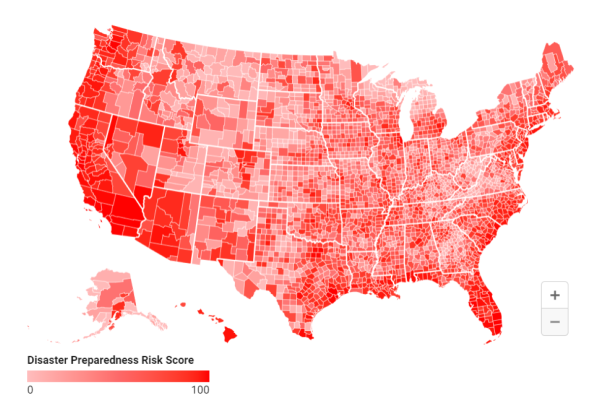Motorists have been warned not to fill their cars with gas at locations across Ohio, Michigan, Kentucky, and Indiana, due to spiking atmospheric pollution.
The National Weather Service has issued air quality alerts and advisories across the four states for Monday, due to high levels of ozone in the air.
Read more: Compare the Top Health Savings Account (HSA) Providers
In Ohio, the counties of Montgomery, Miami, Greene, Clark, Preble and Darke in the Miami Valley Region have been hit with an air quality alert; Butler, Clermont, Hamilton and Warren counties in Ohio; Boone, Campbell, and Kenton counties in Kentucky, and Dearborn County in Indiana have an air quality advisory until midnight tonight.
Manistee, Leelanau, Grand Traverse, Berrien, Cass, Benzie, Wayne, Washtenaw, Macomb, Oakland, Livingston, St. Clair, Monroe, Allegan, Kent, Muskegon, Oceana, Ottawa, Mason, and Van Buren counties in Michigan all have an air quality advisory in place for Monday.
This is due to "elevated levels of ozone" which "may approach or exceed unhealthy standards," according to the NWS, promoting the agency to warn drivers to avoid filling up their vehicles at gas stations.
Ozone pollution, also known as ground-level ozone, is a harmful air pollutant formed when pollutants from vehicles, industrial facilities, and other sources react with sunlight. Unlike the protective ozone layer in the upper atmosphere, ground-level ozone is detrimental to health and the environment. This ozone can reach dangerously high levels on particularly hot and sunny days. The Midwest is currently in the grip of a heatwave.
Read more: What Is a Health Savings Account?
"Help reduce ozone by taking the following actions: Carpool, if possible, bike, walk or take the bus instead of driving alone; Refuel your vehicle after 8 pm; Do not idle your vehicle, exhaust contributes to air pollution; Mow your lawn in the evening hours and avoid the use of gas-powered lawn equipment," the NWS alerts advise.
Ground-level ozone is harmful to health because it irritates the respiratory system, reduces lung function, and aggravates conditions like asthma and bronchitis. It can cause coughing, throat irritation, chest pain, and shortness of breath. Long-term exposure can lead to more serious respiratory diseases, reduce lung function growth in children, and increase the risk of respiratory infections. Vulnerable groups, such as children, the elderly, and those with pre-existing health conditions, are particularly at risk.
Read more: Earn up to 5% Cash Back With a Gas Credit Card
"Air quality levels will be unhealthy for sensitive groups during this period. If you are in the sensitive groups category of children, the elderly and those with breathing difficulties, please monitor your outdoor activity and check air quality readings," the NWS said.
There are also high ozone levels in certain Colorado and New York state counties—Douglas, Jefferson, Denver, western Arapahoe, western Adams, Broomfield, Boulder, Larimer, and Weld Counties in Colorado; and Monroe, Wayne, Northern Cayuga, Oswego, Jefferson Niagara, Orleans, Erie, Genesee, Wyoming, Chautauqua, and Cattaraugus counties in New York—with motorists being urged to avoid driving during the day. The advisories did not specifically recommend not filling up vehicles.
"Request to limit driving gas and diesel-powered vehicles is now in effect until at least 4 p.m. Monday, June 17, 2024. Hot and sunny weather may allow ozone concentrations to reach the Unhealthy for Sensitive Groups category on Sunday and Monday," the NWS said.
"New York State Department of Health recommends that individuals consider limiting strenuous outdoor physical activity to reduce the risk of adverse health effects. People who may be especially sensitive to the effects of elevated levels of pollutants include the very young and those with pre-existing respiratory problems such as asthma or heart disease. Those with symptoms should consider consulting their personal physician."
Do you have a tip on a science story that Newsweek should be covering? Do you have a question about ozone pollution? Let us know via science@newsweek.com.
Disclaimer: The copyright of this article belongs to the original author. Reposting this article is solely for the purpose of information dissemination and does not constitute any investment advice. If there is any infringement, please contact us immediately. We will make corrections or deletions as necessary. Thank you.



